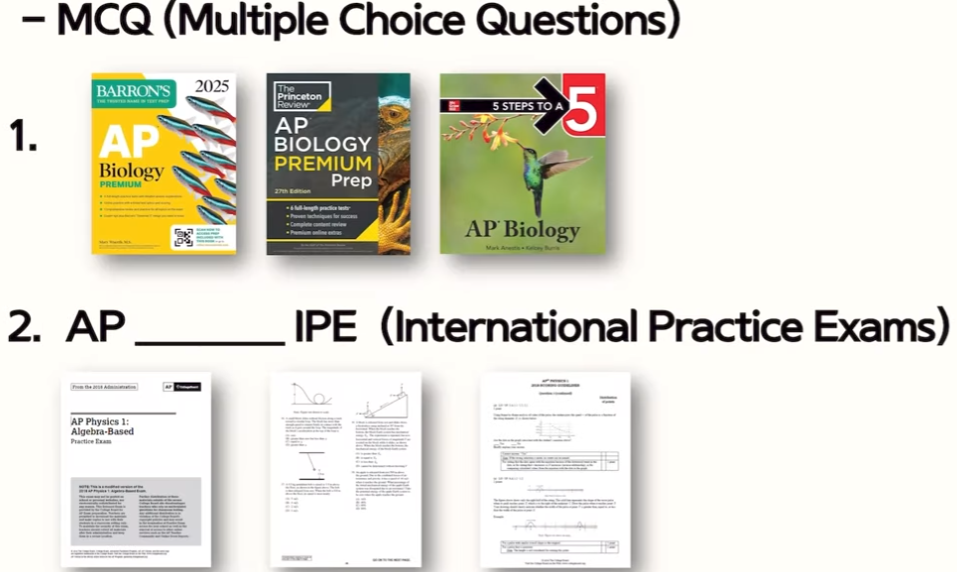
A ONE INSTITUTE
Mar 8, 2025
As an expert with over two decades of experience guiding students through the U.S. college admissions process, I am excited to share critical insights about the Advanced Placement (AP) exams, particularly as we approach the 2025 testing cycle. With AP exams evolving into digital formats and playing an increasingly vital role in college admissions, understanding their importance and mastering strategies for success have never been more essential. In this column, I’ll explore why AP exams matter, how top universities evaluate them, and actionable tips to help you achieve high scores.

Why AP Exams Matter for College Admissions
The AP exams, administered each May, are a cornerstone of the college admissions landscape. For students aspiring to attend competitive universities, three key elements stand out:
Enrolling in AP Courses: Simply taking AP-level classes in high school signals your commitment to academic rigor.
Excelling in AP Coursework: Earning strong grades in these challenging courses is critical.
Scoring Well on AP Exams: Your performance on the May exams is a vital measure of your mastery of the material.
Why do these factors matter? AP scores serve as a powerful supplementary indicator for colleges evaluating applicants. They provide admissions officers with a standardized measure to assess your academic preparation beyond your high school GPA. Additionally, the College Board has updated the AP exams, phasing out older formats and aligning questions with the latest educational trends. This means that focusing on recent exam patterns is essential for effective preparation.
How Top Universities View AP Courses and Scores
To illustrate the value colleges place on AP performance, let’s examine the Common Data Sets (CDS) from several elite institutions. These datasets reveal the criteria admissions offices prioritize:
Harvard University:

Course Rigor: Considered
GPA: Considered
Standardized Tests: Considered
Yale University:

Course Rigor: Very Important
Class Rank: Very Important
GPA: Very Important
Yale emphasizes rigorous coursework, such as AP or IB classes, as a key indicator of academic strength.
Princeton University:

Course Rigor: Very Important
Class Rank: Very Important
Academic GPA: Very Important
Success in AP and IB courses is a significant factor in Princeton’s admissions decisions.
Stanford University:

Rigor of Secondary School Record: Very Important
Class Rank: Very Important
Academic GPA: Very Important
Standardized Tests: Very Important
Stanford places a high premium on both test scores and rigorous academics.
MIT:

Course Rigor: Important
Academic GPA: Important
MIT considers these factors critical, though it uniquely reserves “Very Important” status for a specific criterion (to be explored in a future discussion).

In summary, enrolling in AP courses is a pivotal way to demonstrate course rigor—a quality top universities consistently prioritize. Whether you’re targeting the Ivy League or a STEM powerhouse like MIT, a strong AP record sets you apart.
The Evidence: AP Scores Predict Academic Success
A College Board report offers compelling data on how AP participation correlates with academic performance:
High School GPA: Students scoring 1-2 on AP exams have higher average high school GPAs than those who don’t take AP courses. Those scoring 3-5 have even higher GPAs.
College First-Year GPA:
Students who never took AP courses average a 2.74 GPA in their first year of college.
Students scoring 1-2 on AP exams outperform this benchmark.
Students scoring 3-5 achieve significantly higher first-year GPAs.
This trend extends to college persistence. Students with AP scores of 3 or higher demonstrate a greater probability of thriving in college compared to those scoring below 3. Colleges recognize this pattern, viewing strong AP scores as a predictor of a student’s ability to succeed in higher education.

Additional data highlights subject-specific correlations between AP scores and college GPA:
Mathematics: Strongest correlation
English Language: Second strongest
History: Third strongest


Based on this, I strongly advise:
STEM Students: Take AP English and aim for a 4 or 5. It’s a key indicator of your ability to maintain a solid college GPA, even in technical fields.
Non-STEM Students: Enroll in at least one AP math course in 11th or 12th grade to bolster your quantitative skills.
Finally, consider dual enrollment programs, where high school students earn college credit. Data shows that students taking these courses at four-year colleges have a slightly higher persistence rate in college than those at two-year institutions.
Understanding the AP Exam Structure
AP exams consist of two sections:
Multiple Choice Questions (MCQ): Objective questions that test foundational knowledge. Early questions tend to be easier, making them accessible with moderate preparation.
Free Response Questions (FRQ): Subjective questions requiring detailed responses. These are the critical differentiators, often determining whether you earn a 3, 4, or 5.
Mastering both sections is essential, but the FRQ carries particular weight for top scores.
Top Tips for Scoring High on AP Exams

1. Master the FRQ Section
The College Board generously provides past FRQ questions, scoring guidelines, and sample responses online. To prepare:
Search: [subject name] + Scoring guideline + [year]
Study these materials to understand what earns full points and what leads to deductions.
Start with the previous year’s exam (e.g., 2024 for 2025 prep). Difficult concepts rarely repeat year-to-year, so practicing recent exams helps you focus on likely content.

I recommend College Board resources over commercial test prep books for their authenticity and alignment with the actual exams.
2. Prepare Strategically for MCQ

While books like Princeton Review, Barron’s, or 5 Steps to a 5 are useful, prioritize College Board materials when possible. Although MCQs aren’t fully public, search for:
[subject name] + IPE (International Practice Exams)
These are released to teachers and graders and offer valuable practice. If access is limited, supplement with school-provided materials.
3. Embrace the Digital Transition
Several AP exams are now fully online, with others adopting a hybrid format. Practicing in a digital environment is crucial to avoid surprises on test day.
4. Leverage Free Resources
I’m excited to announce that, starting in April, we’ll offer free AP practice tests on our website, ett-test.com. These will include one set of MCQ and FRQ per subject, mirroring the digital format. Visit us to hone your skills at no cost.
Final Thoughts
AP exams are more than a chance to earn college credit—they’re a robust tool to validate your high school GPA and showcase your readiness for college. By taking rigorous courses, preparing strategically, and leveraging available resources, you can maximize your scores and strengthen your college applications.
For additional support or questions, reach out to us at A-One Institute. Best of luck as you prepare for the 2025 AP exams—your hard work will pay off!
Thank you for reading, and happy studying!

